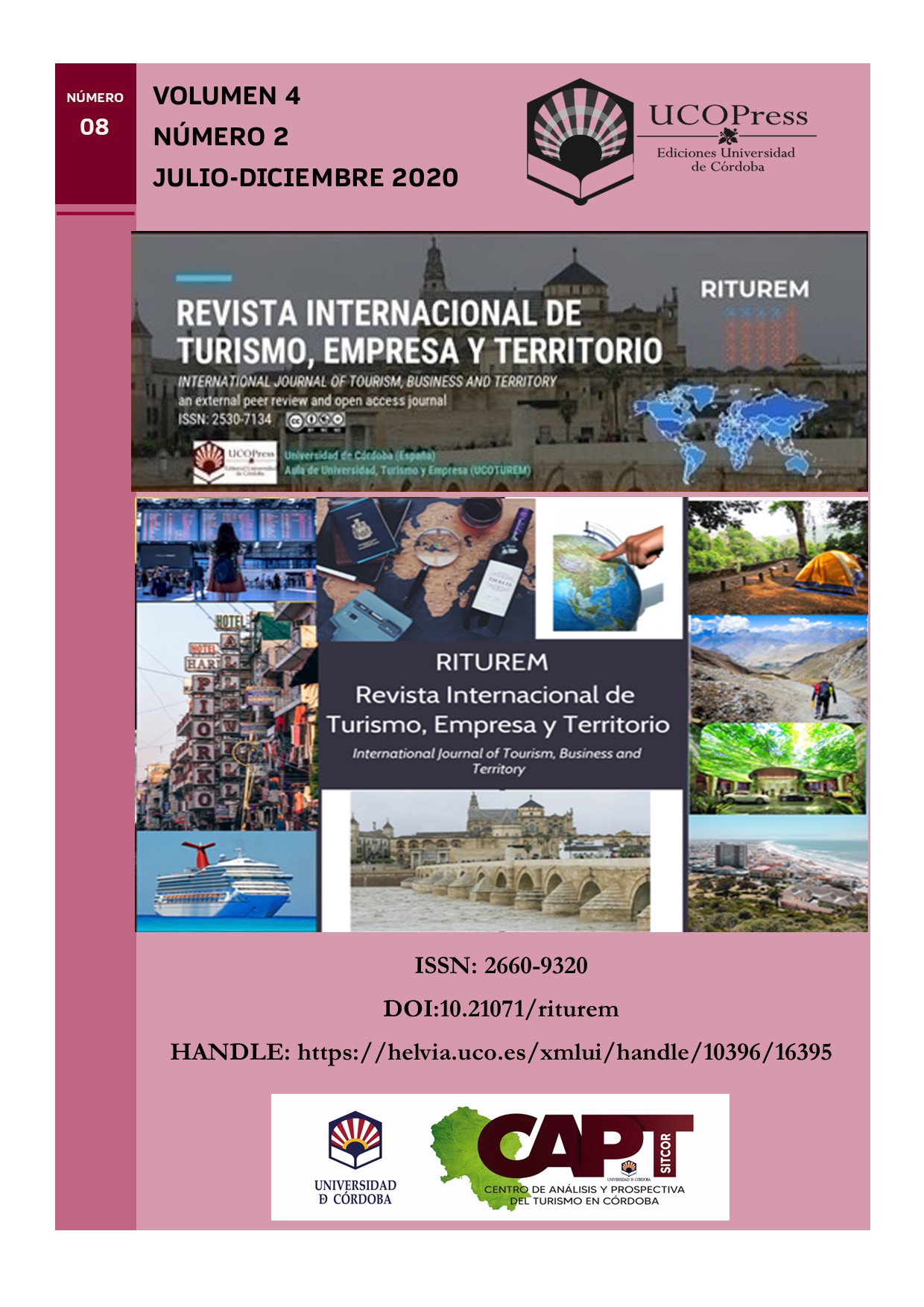University training in tourism: an academic and labor perspective in Bogotá (Colombia)
Main Article Content
Abstract
This article aims to describe the relationship in training of professionals in hospitality and tourism, with the human talent needs of companies in the tourism sector in Bogotá (Colombia). To this end, a bibliographic review was made about the researches that have studied the curricular plans in this discipline and their relationship with employment. The methodology of this research is qualitative; Structured and semi-structured interviews were conducted as research instruments. These were made to the directors of the university institutions, in order to know the Just graduated professional profile. A similar work was also carried out with the directors of human talent in the tourism services providers, to identify the main needs of the professional positions. This fieldwork was carried out in the city of Bogotá D.C., where some discrepancies between the academic professional training, as well as the needs of human talent are shown; among which was found, the lack of practice and the deficit in bilingualism.
Keywords: Education, tourism, skills, human resource, Bogotá (Colombia)
Downloads
Article Details
Copyright Notices Proposed by Creative Commons
Proposed policy for journals offering deferred open access
Those authors who have publications with this journal, accept the following terms:
1. The authors will retain their copyright and guarantee to the journal the right of first publication of their work, which will be simultaneously subject to the Creative Commons Recognition License CC BY-NC 4.0 (Creative Commons — Attribution-NonCommercial 4.0 International — CC BY-NC 4.0 ) hird parties to share the work provided that its author and its first publication is indicated this journal and no commercial use is made.
2. Authors may adopt other non-exclusive licensing agreements for the distribution of the published version of the work (e.g., deposit it in an institutional telematics file or publish it in a monographic volume) provided that the initial publication is indicated in this journal.
3. Authors are allowed and recommended to disseminate their work over the Internet (e.g. in institutional telematics files or on their website) before and during the submission process, which can produce interesting exchanges and increase citations of the published work. (See The effect of open access: http://opcit.eprints.org/oacitation-biblio.html.
